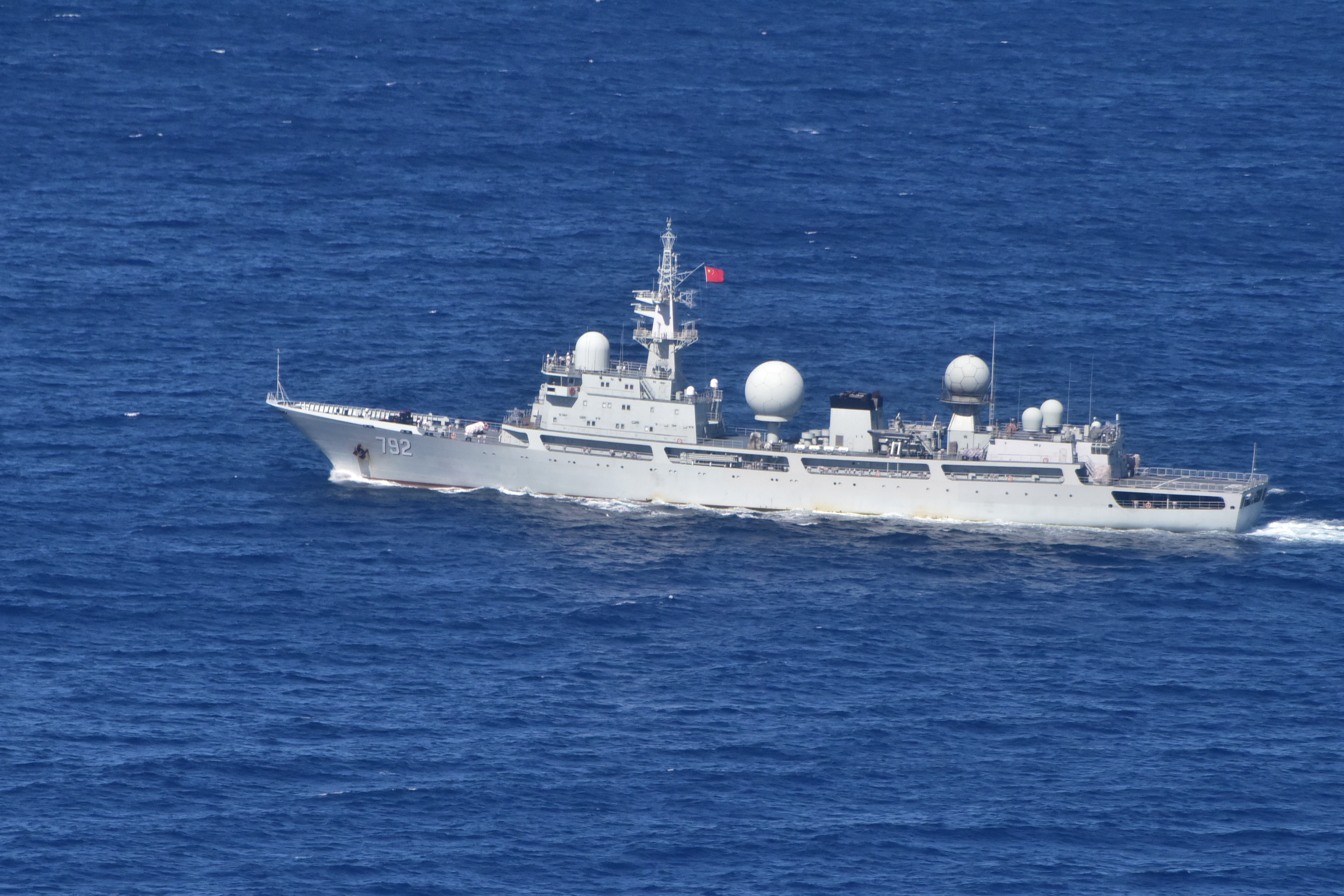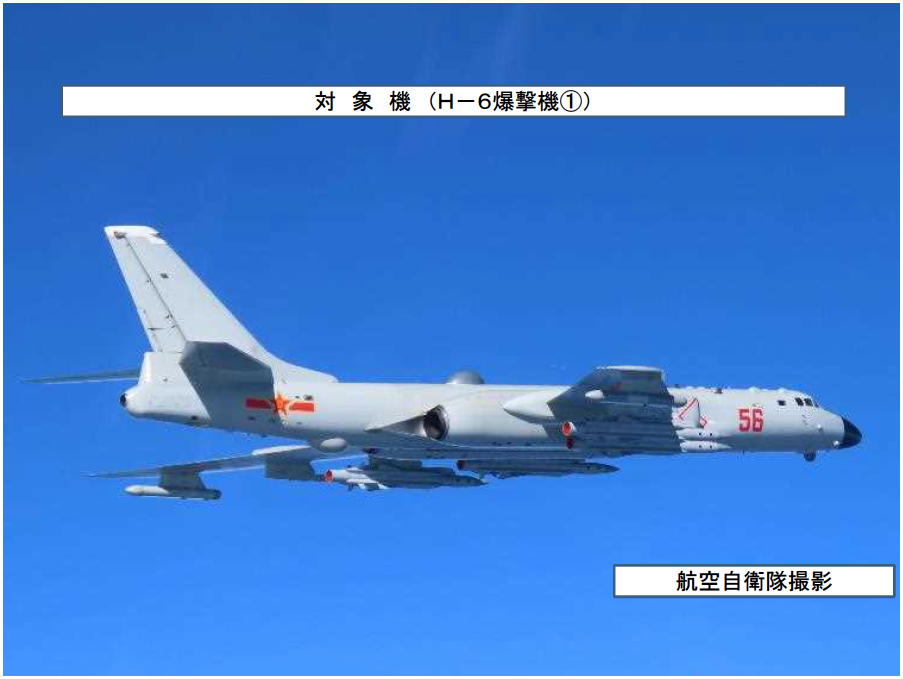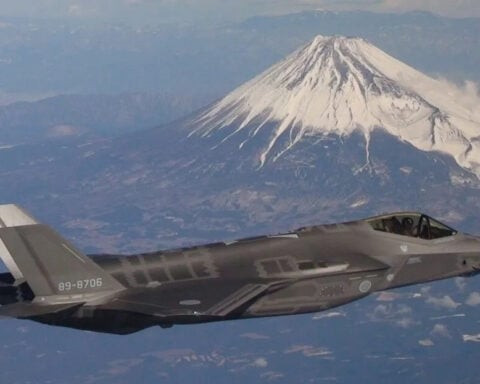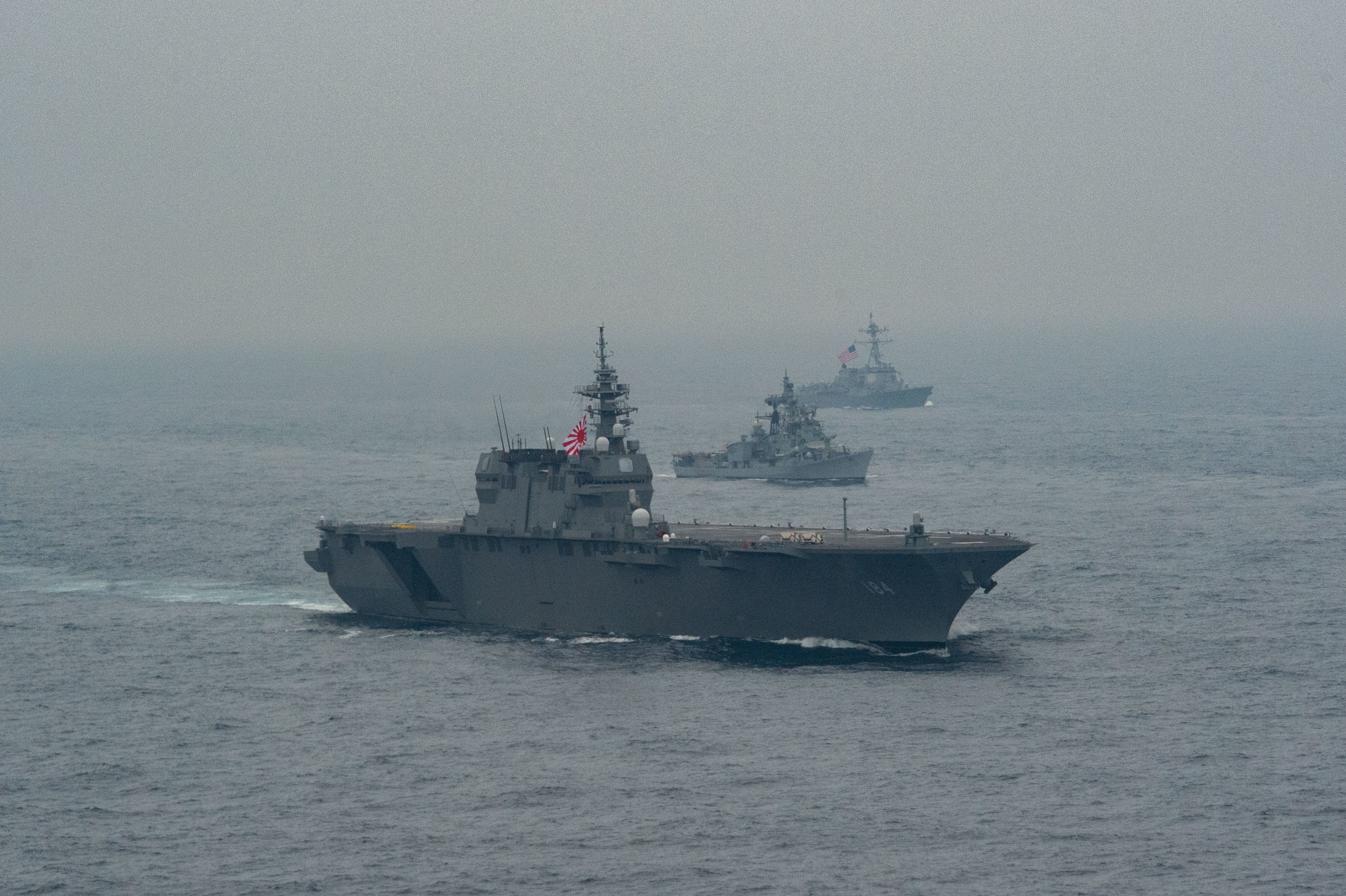
The increasingly frequent aggressive actions by the Peoples Liberation Army Air Force like “chaffing” an Australian patrol aircraft in international waters and causing a Canadian patrol aircraft to alter its course to avoid a collision off North Korea “look like a pattern and policy” dictated by Beijing rather than random acts by pilots, the Pentagon’s senior official on Indo-Pacific security said Tuesday.
Ely Rattner, speaking at a Center for Strategic and International Studies talk, described these acts as “really new, really worrisome.” These “unsafe intercepts … are growing by order of magnitude,” he said.
It is likely that the Chinese Navy will adopt this more aggressive posture in its operations in the western Pacific, Rattner said.
The use of military intimidation is a change from Beijing’s use of naval militia and its coast guard to assert territorial claims in the South China Sea. In the past, their presence and operations were intended to coerce and harass. These acts of maritime bullying, which are continuing, occurred as China was also building artificial islands to be used for military purposes on coral reefs and other outcroppings to assert sovereignty over waters far removed from the mainland.
In his opening remarks, Rattner said the Chinese leadership is showing “a greater willingness to take risks.” He added there have been “dozens of dangerous intercepts in the first half of this year alone.”
There is a growing risk that one of these incidents could escalate to a crisis between Beijing and Washington, Rattner said.

China’s policy in the Indo-Pacific is “might makes right,” rather following than the rules-based order that has seen the region grow economically. In answer to an audience question, Rattner said the United States employs Freedom of Navigation operations to keep international waters open to all nations for trade, including China.
China’s “playbook is growing” not just as a regional power, but “asserting themselves as a global power,” especially with its growing navy, Rep. Rob Wittman (R-Va.), a ranking member of the seapower and projection forces subcommittee, during his CSIS keynote address.
“China cannot be allowed to operate where its sovereignty doesn’t exist,” Wittman said.
Wittman and Rattner mentioned international tribunals rulings against China’s claims to territory. Beijing rejected the rulings.
Last month at a security conference in Singapore, Chinese Defense Minister Wei Fenghe told the United States to stop smearing China. Wei said the United States is trying to encircle China through regional partnerships like the Quad, the informal relationship among the United States, India, Japan and Australia, and through more clearly defining its alliances with nations like the Philippines and Thailand.
On the sidelines of the Singapore conference, Wei, who wore a military uniform for his address, met with Defense Secretary Lloyd Austin. Rattner said the two discussed establishing guardrails over behavior at sea and in the air and “seeking open lines of communications” to avoid miscalculation following an incident involving the nations’ military forces.
In addition to expanded maritime exercises with nations like Indonesia and the deployment of an American Coast Guard cutter to Southeast Asia to help train the region’s maritime forces, Rattner said the Defense Department sees great promise in the Quad-sponsored maritime domain awareness initiative.
As he explained, the initiative will be space-based and will collect, move about and share unclassified information using artificial intelligence about maritime activities in a nation’s exclusive economic zone. Rattner said the initiative will be demonstrated next month in Singapore and again in September for Pacific Island nations interested in securing their waters from illegal fishing and to respond to humanitarian and natural disasters.





